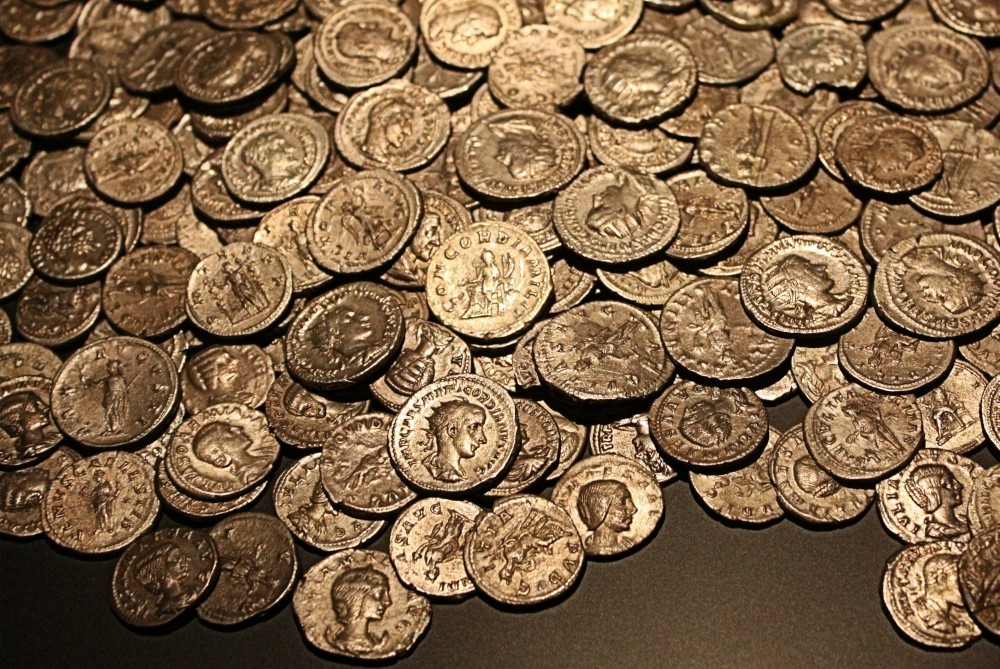
(PxHere)
Isaiah must have been in a gutsy mood the day he wrote that Cyrus the Great, the conqueror of the biggest empire in the world, was an unsuspecting but obedient agent of the God of Israel. Isaiah was a fan of Cyrus because the emperor allowed the Israelites to return to Jerusalem and rebuild their temple. Isaiah's assessment of Cyrus risked offending ordinary Jews as much as the Persian elite because he called Cyrus God's anointed one, in other words, their messiah.
The double whammy opening line of Isaiah's Chapter 45 was thus a good news/bad news proclamation for the Israelites. The good news: God was saving the chosen people. The less palatable: God was doing so through a pagan who cared nothing for the God of Israel.
This scenario, which reminds us that the relationship between church and state is never simple, leads to today's Gospel.
There was nothing subtle about the group of religious leaders who tried to compel Jesus to decide between pious observance of the commandments and obedience to the law of the land. The question about paying taxes attempted to force Jesus to choose between acting like a prophetic rebel-hero or a heretical collaborator who honored the emperor.
Unfortunately for those out to ensnare him, Jesus didn't live in a universe defined by either/or choices. (They should have remembered how his talk about fulfilling and not abolishing the law demanded deeper thinking than their ordinary debates!) They offered him bait, and Jesus trapped them.
When Jesus asked them to show him a coin, he let his interrogators expose themselves in the act of violating the command against dealing with graven images. The Roman money used to pay the tax carried an image of the emperor and an inscription designating Caesar as the son of the deified Augustus.
We can imagine Jesus dramatically pointing to their coin, exaggerating the distaste a faithful Jew of his day would have for any kind of idol, and asking, "Whose image and whose inscription?"
Their answer spotlighted their hypocrisy. Possessing that coin was a tacit admission that they were not above collaborating with the Romans. According to the strictest interpretations, that coin bore an idolatrous image and a blasphemous claim; they might as well have pulled out "Israel belongs to Caesar" caps.
In spite of the visual evidence they produced against themselves, Jesus made no accusations against them. He simply sent them off with a brilliantly enigmatic dictum: "Repay to Caesar what belongs to Caesar and to God what belongs to God."
Most simply, that left them to answer their own question about the legality of paying taxes. At a deeper level, Jesus challenged them to think about images, whose image they bore and in whose image they had been created.
Jesus not only succeeded in avoiding the trap of giving a definitive answer to their trick question, but also called them to consider deeper issues. Ultimately, Jesus' response interrogated them. He was asking: "Is there anything in creation that does not belong to God? If not, then what?"
Advertisement
Every 12 years, our liturgical and civic calendars coincide to give us these readings in the weeks before a presidential election. Today, these Scriptures encourage us to consider the complex relationships between God and Caesar, church and state, the reign of God and civil society.
Our selection from Isaiah depicts God as the lord of history, an idea St. Paul explains in Romans 8:28 by saying, "We know that all things work for good for those who love God."
Calling God the Lord of history proclaims that no situation is beyond the reach of God's grace. This means that although God may not intervene directly in human affairs, what Pierre Teilhard de Chardin called "grace and circumstances acting on your own good will," is the combination that allows God's will to become a reality in our world.
In today's parlance, we might say that when Jesus responded to his Pharisee questioners, he refused the trap of identifying with a single issue. Jews and Christians in the Roman Empire lived with high-stakes moral dilemmas as they tried to balance fidelity to God with survival under pagan rule. Touchy Romans could punish sedition with crucifixion and fanatically scrupulous religious leaders had authority to stone sinners. Happily, the risks are not quite that great for most of us today.
The U.S. bishops' document "Forming Consciences for Faithful Citizenship" calls us to bring "the best of ourselves and our faith to the public square," to quote the bishops' "Civilize It" campaign. That requires us to be gutsy like Isaiah and wise like Jesus.
As Teilhard suggests, rather than be caught by one issue or point of view, we need to seek how grace and circumstances call forth our good will. As Jesus showed over and again, there is rarely one correct answer.
[St. Joseph Sr. Mary M. McGlone serves on the congregational leadership team of the Sisters of St. Joseph of Carondelet.]
